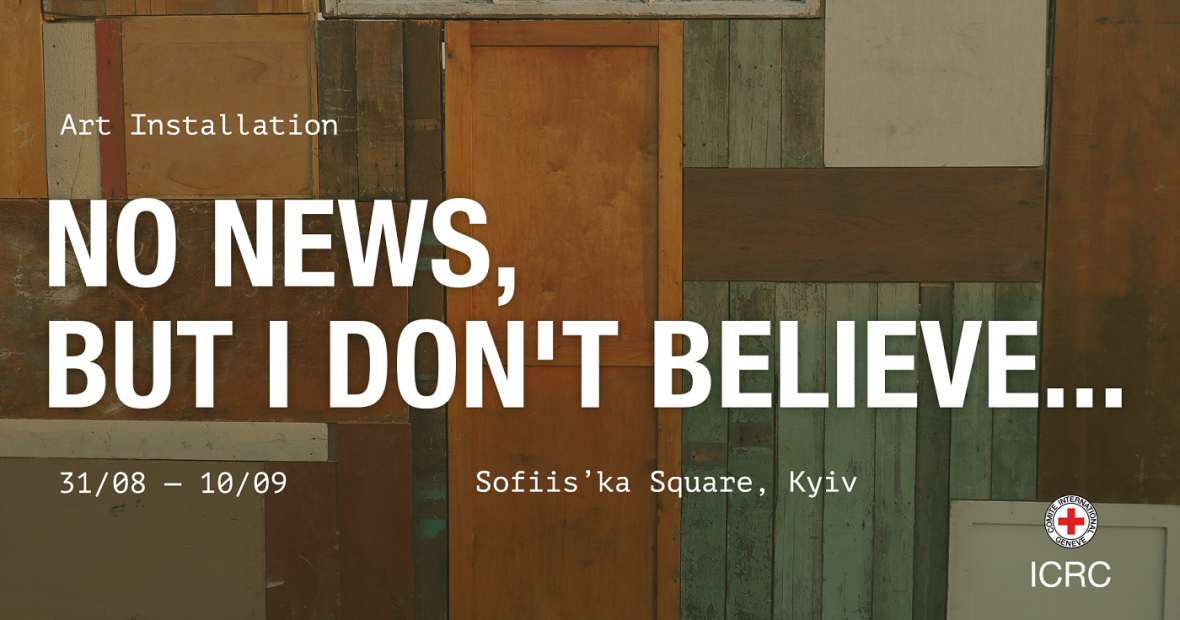On the International Day of the Disappeared, the ICRC unveils an art installation dedicated to those missing in connection with the Ukraine crisis
Kyiv (ICRC) – It has been more than three years since the armed conflict in east Ukraine erupted, but for the families of over 1,500 people who are believed to be missing, each day is like a lifetime. Representing the constant uncertainty and anxiety of these families, an art installation entitled “No news, but I don’t believe…” is unveiled by the International Committee of the Red Cross (ICRC) today to mark the International Day of the Disappeared – 30 August. The installation will be on display at Sofiis’ka Square in Kyiv until 10 September 2017.
The installation is dedicated to people who have gone missing from the conflict-torn region of Donbas, and their families across Ukraine. A metaphorical labyrinth dotted with real stories about the families of those missing on both sides of the line of contact, the installation journeys into the entangled world of searching and waiting. The aim is to help visitors understand the pain, psychological stress and desperation of those who just want to know what happened to their loved ones.
“Families of those who have gone missing must not be forgotten,” said Alain Aeschlimann, the head of the ICRC delegation in Ukraine. “What they have endured every single day since the disappearance, and all its consequences, must be recognized. They face tremendous challenges and it’s important to take into account their specific needs.”
Over 650 cases of missing persons currently registered with the ICRC in Ukraine remain unsolved. The vast majority are men, and around half of the overall ICRC caseload since the beginning of the conflict concerns civilians who have disappeared. But whether people disappear from the battlefield, or everyday life, the effects are felt by their families, communities and society at large. The families not only endure emotional turmoil, but also struggle to stay afloat financially and face administrative and legal challenges.
An appropriate legal framework is needed in order to address needs of the families in a comprehensive and coordinated manner. In this regard, the ICRC has welcomed the will of the Ukrainian authorities to draft a law on the missing, and hopes for its swift adoption.
“Our services are there for everyone seeking contact with, or news about, relatives who are missing or from whom they are separated,” Mr. Aeschlimann explained. “Together with the local Red Cross branches, ICRC teams are actively assisting families who are looking for their missing loved ones. People have the right to know. We are also providing advices and support to all sides concerned with regard to legal issues, exchange of information and forensic activities”.
Since 2016, the ICRC has been running a programme to help these families meet their psychosocial and material needs, which involves home visits by psychologists and monthly cash assistance. In addition, ICRC forensic experts provide training and technical and material support for the exhumation and identification of human remains, as well as coordinating with search and recovery teams and the police. Today, several hundreds of remains of people who have died in connection with the conflict have to be urgently identified. Each dead body is a missing person. Those bodies deserve a name.

